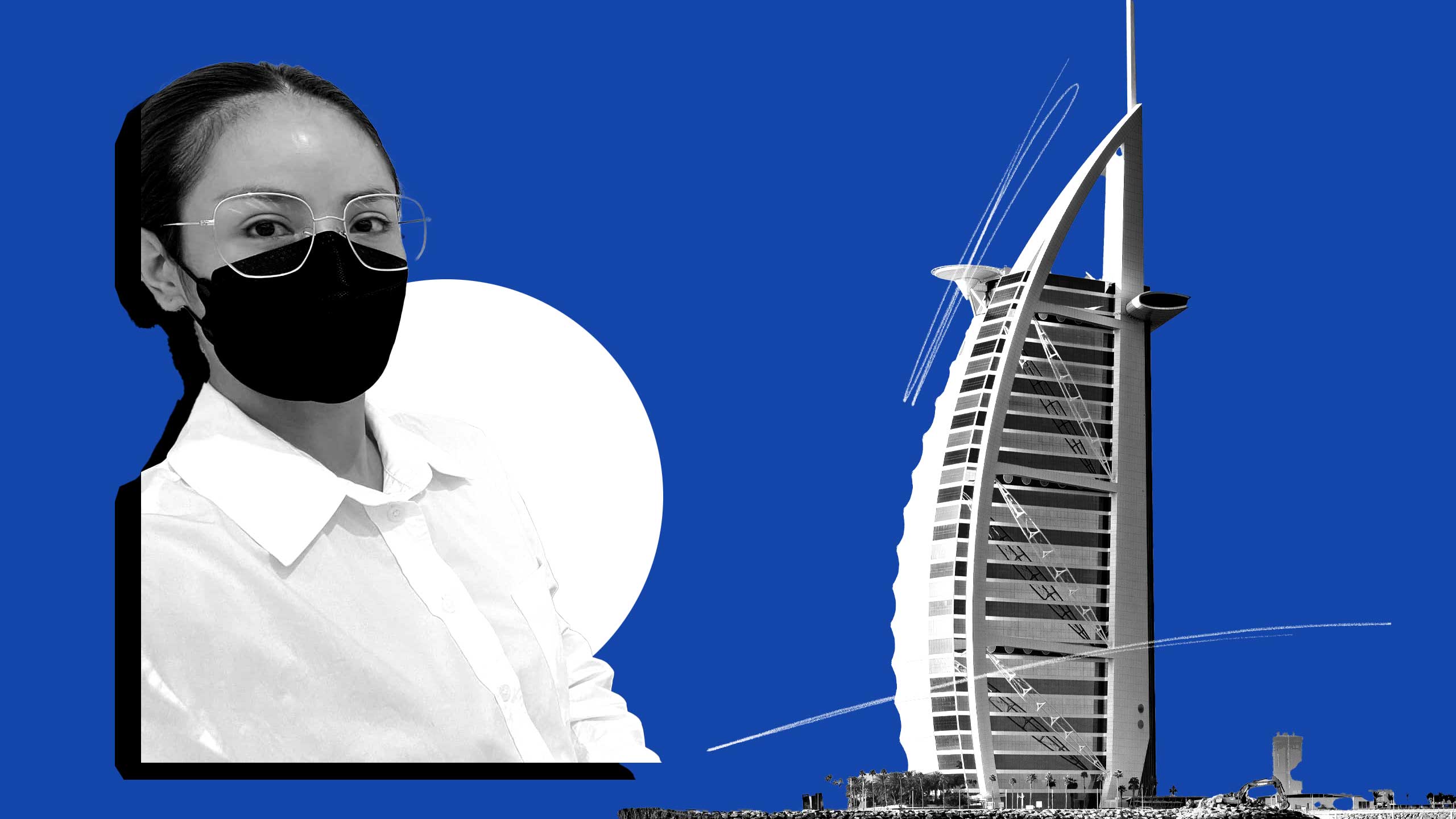Rachaya Noppakaroon, a trans model from Thailand, says she was denied entry to the United Arab Emirates because her passport has a male gender marker, according to a March 16 Facebook post.
Noppakaroon, along with a team of 14 people, were travelling to perform a Muay Thai demonstration at Expo 2020, a months-long global event currently being held in Dubai. The group had all the necessary travel documents—including visas, vaccination records and passports. But despite having the proper paperwork, she says she was detained by immigration officials at the Dubai International Airport after presenting a passport with an uncorrected gender marker.
After being interrogated about her body and gender identity for nine hours, Noppakaroon was denied entry and had to return to Thailand, according to Vice magazine.
Noppakaroon described the ordeal as a “nightmare during which I’m fully awake” in her social media post. She says that she was forced to sit in a men’s waiting area and was asked invasive questions by airport officials, including what gender-affirming surgeries she had undergone and whether her breasts are “big or small,” according to Noppakaroon.
Noppakaroon says that she attempted to confirm her identity by showing a member of the airport’s security team video footage of her modelling, including when she was runner-up in the 2014 Miss Tiffany Universe beauty page.
“But he didn’t really care and was more interested in sex,” she wrote of her interaction with the unnamed official.
LGBTQ+ people are criminalized in the United Arab Emirates. Same-sex relations are punishable by a sentence of up to 14 years in prison, according to the U.K. non-profit Human Dignity Trust. Under the country’s strict interpretation of Sharia law, gay sex can be punishable by death, but LGBTQ+ advocates say capital punishment is rarely enforced in sodomy prosecutions.
Cisgender gay men and trans women are also routinely targeted under Article 359, a law prohibiting “any male disguised in a female apparel and enters in this disguise a place reserved for women.” Charges can result in a maximum sentence of one year in prison, per the LGBTQ+ advocacy group ILGA World.
Two Singaporeans—a trans woman and a cis man—were arrested in 2017 at a shopping mall in Abu Dhabi after authorities claimed they were “attempting to resemble women,” as the international civil rights non-profit Human Rights Watch reports. A court sentenced the individuals to one year in prison, but an appeals court later changed their sentence to deportation and a fine. The defendants were allegedly in the United Arab Emirates for a photo shoot.
Noopakaroon says she doesn’t blame Dubai employees for the ordeal, even though she stressed in her Facebook post that she is still angry. She blames Thailand’s laws: the country prohibits gender marker changes on legal documentation, according to ILGA World.
In her social media call out, Noopakaroon urged Thai officials to change the country’s policies to ensure no one else ever experiences what happened to her. “I hope they will see that it’s something that needs to be fixed,” she said.


 Why you can trust Xtra
Why you can trust Xtra


